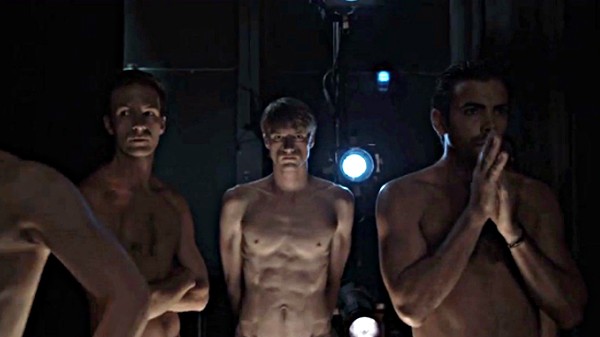
Heart of A Dog (2015; dir. Laurie Anderson)—I own two dogs. Stanley, an 11-year old lab/Great Dane/blue heeler mix, is still loud and spry. He’s also tumorous and gray-haired and has kidney problems. He could go any time within the next year. Lucy is a cute but neurotic 9-year old mini pit-bull who’ll probably expire from despair when Stanley goes. Some days their eventual partings from this world weigh on me more than most of my human problems.
So yes, Anderson’s latest provides wise, humane advice about end-of-life pet care, and I’m grateful for that. But Heart of A Dog does a lot of other things, too. What it doesn’t do is behave like a traditional film. The handful of people who bolted the theater midway through the screening I attended last week could probably attest to this—clearly they weren’t expecting something so plotless (and smart and digressive and profound). It doesn’t behave as a museum installation or a long-form music video, either, even though the soundtrack album is literally the soundtrack to the whole movie. On her website, Anderson calls Heart of A Dog a “piece.” That sounds about right. Something to hold in your hand, turn over, put back on the shelf, and stuff in your pocket absent-mindedly one afternoon only to rediscover hours or months later.
The late, great essay-film specialist Chris Marker, whom Anderson thanks in the closing credits, is one obvious inspiration; the whispering narrator from Godard films like Two or Three Things I Know About Her is another. But Anderson is a kinder, gentler, funnier and less theory-sodden guide. If you can approach her speculations, jokes and mysticism with the same smiling awe you can hear in her voice, then you’ll have a real cool time together. In little more than an hour, Anderson links up global surveillance, her loving relationship with her rat terrier Lolabelle, sorrowful nights spent in the children’s burn unit, her prickly relationship with her mom and the inherently “creepy” nature of storytelling. She talks a lot about death, too, which lingers in the background like the smell of a previous tenant. Her ground- and eye-level re-enactments and re-imaginings of past events are often veiled by sleet, snow and rain, as though she’s observing them from a safe distance behind glass. She heeds The Tibetan Book of The Dead’s instructions and refuses to cry. By doing so, she makes you “feel sad without being sad.”
Heart of A Dog is a mellow little mongrel bred from words, pictures and ideas. It includes at least two pieces of quotable wisdom—“Death is the release of love” and “Most adults have no idea what they’re talking about”—and one worthwhile existential question: “Are you perhaps made of glass?” It saves its best music for last, too; one of Anderson’s final images is a photo of Lolabelle and her late husband Lou Reed, whose “Turning Time Around” provides an appropriate postlude.
Grade: A
Heart Of A Dog plays tonight, Wednesday, December 16 at the Memphis Brooks Museum of Art.
